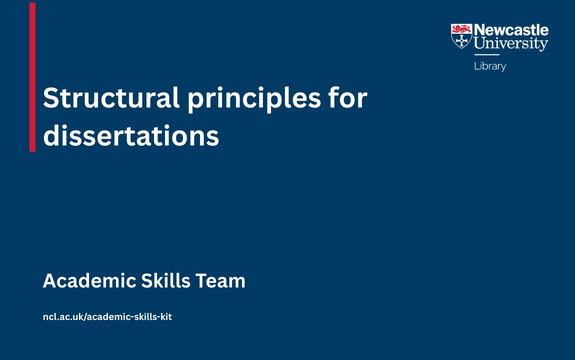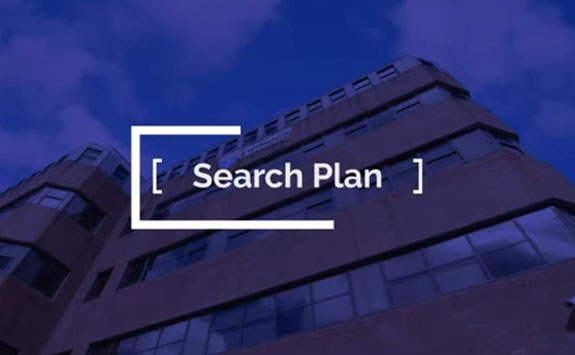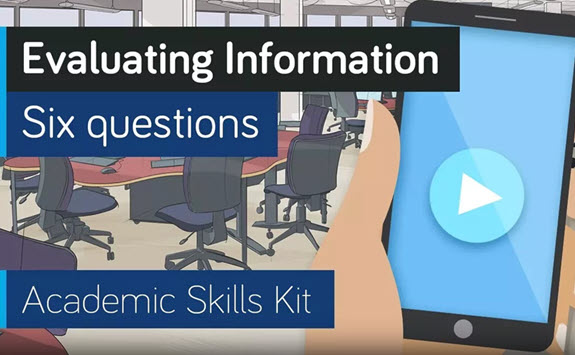Dissertations and Extended Projects
A collection of resources to help you plan and succeed in a dissertation or extended project.
This collection of resources provides you with a range of strategies and advice for tackling your extended project or dissertation, from first draft to final edits.
Planning your work
It’s important to have a clear plan of action when approaching your dissertation or extended project. Take a look at these resources to help make sure you hit the ground running.
Finding and evaluating information
Knowing where to find the right information and being able to establish its quality is a crucial part of the dissertation or extended project process. Selecting the type of information needed for your purpose and the section of the project you are working on, will also help you to determine where and how to search.
Plan your search
Make a start by creating a search plan for your topic, or watch our search planning video to learn more about the steps you need to take to be more methodical in your approach.
Evaluating information
A strong research project needs a strong evidence base, so assessing the quality and relevance of the sources you find and use is vital. You need to be selective and consider potential issues around the authority and accuracy of the information you find.
Our video on evaluating information provides you with six critical questions to consider when making your judgements.
Evaluating your search
If you find that some or all of your search results are not relevant or appropriate to your needs, it’s important that you pause and extend your criticality from the material itself to the search that you carried out. It may be that part of your search plan needs to be changed to improve your results.
Consider the following questions:
- Are you searching on the right databases? Are there other databases you could try?
- Is a particular type of information missing from your plan?
- What keywords and search techniques did you use? Are there alternative synonyms or search combinations you could try?
- What has worked successfully with your search? Why did it work well?
- What lessons have you learned along the way?
Remember literature searching is not a linear process and you need to be willing to review and adapt your search plan as you go to ensure you find all the information you need to successfully answer your search question.
Downloadable resources about critical reading
Building an argument
In an extended project or dissertation the markers will be looking at how you have drawn from the work of other scholars as your foundation, supporting each of your points with evidence.
Being able to combine different sources is an essential academic skill. It demonstrates that you have fully understood the materials you have read and how they impact on your work or research. You will need to weave your sources into your own writing so that it is clear what is your work, and what is the work of other scholars. Whilst also showing how their work relates to yours and helps you make your case.
The sections of an extended project
A dissertation or extended piece of writing can have several different sections making up its overall structure. For more information on the different types of writing you might use, and what to include in some of the key sections of your project, take a look at these resources.






